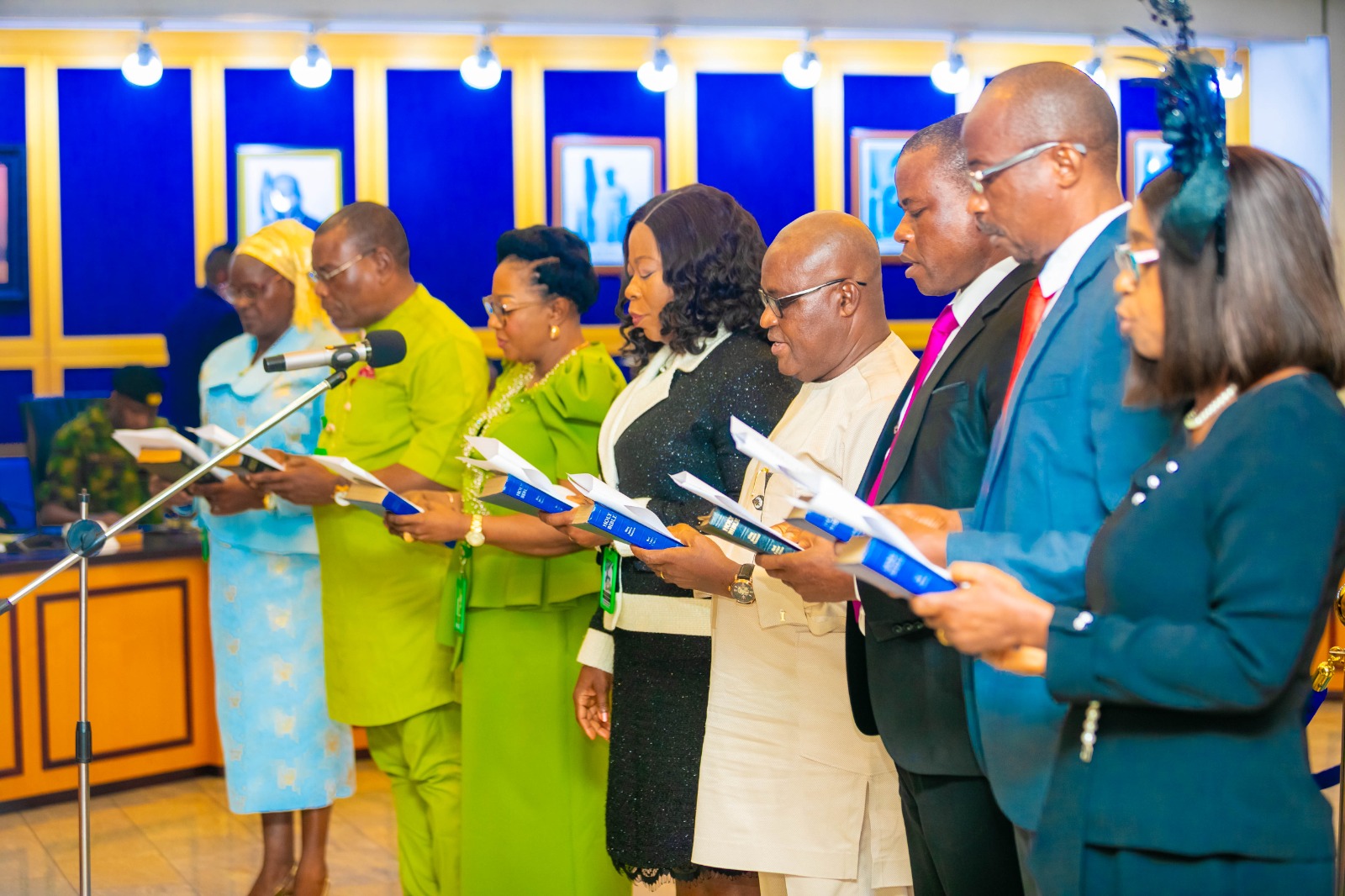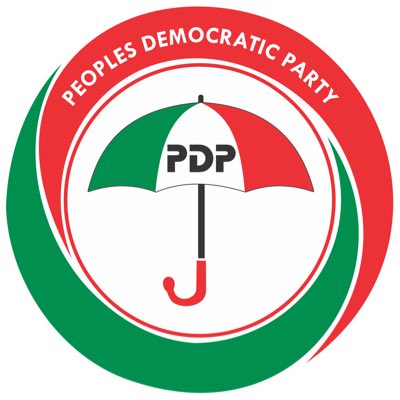News
FG, OPEC Forge Ties To Ensure Global Oil Market Stability

The Federal Government has given assurance of its readiness to support every move that will bring about stability in the global oil market.
This was reiterated at a visit by Dr Mohammad Barkindo, the Nigerian born Organisation of Petroleum Exporting Countries (OPEC) Scribe, to the Minister of State for Petroleum Resources, Chief Timipre Sylva, in Abuja.
They both expressed their readiness to work hand-in-hand to ensure stability of the global crude oil market.
Sylva said that Nigeria, as one of the leading oil and gas producing nations in Africa, would continue to abide by the Declaration of Cooperation (DOC) which has gone a long way in stabilising the market for the collective good of the producing and consuming nations.
On his part, Barkindo applauded Nigeria for the key role it has been playing in the global crude oil market, noting that the 50 years partnership between OPEC and Nigeria has impacted the crude oil market positively.
He presented a book entitled “Nigeria and OPEC: 50 years of Partnership,” to mark the golden anniversary of its membership in the Organization of Petroleum Exporting
Can The Biden Administration Meet Its Ambitious Offshore Wind Power Target?
Earlier this year, the Biden administration said it planned to build offshore wind power generation capacity to the tune of 30 GW by 2030, creating more than 44,000 direct jobs and close to 33,000 indirect ones. To date, the United States has wind power capacity of 118 GW. Of this, only 42 MW is offshore wind. And According to IHS Markit, the 30 GW additional capacity target will almost certainly be missed.
Last year, the United States set a record in wind power capacity additions, at 14.2 GW added during the pandemic year. That was a continuation of another strong year in 2019, which also set a record in wind power additions, according to data from the Energy Information Bureau.
However, the reason for this boom in wind power generation capacity was not a simple response to greater demand for wind power. In fact, the reason for the records set in both 2019 and 2020 was the looming phase-out of the production tax credit, which spurred the mass deployment of wind and solar installations.
In December, Congress extended the production tax credit, which provided wind farm operators with a credit of $0.025 per kWh, until the end of this year. There are other incentives available to the wind industry, too. The biggest is the investment tax credit, which covers between 12 and 30 percent of investment costs at the start of the project. As of December, Congress has established a 30-percent investment tax credit for projects that start construction by December 2025.
So, with so much government help for the wind power industry, the 30 GW target in offshore wind should be a no-brainer. Yet, there are other factors at play besides government incentives and it is these factors, according to IHS Markit, that would make hitting the 30 GW target impossible.
For starters, the permitting process for offshore wind projects is lengthy and complicated, IHS Markit’s Andre Utkin wrote in a recent analysis of the topic. Then, there are not enough manufacturing facilities for the turbines, blades, and other equipment that goes into a utility-scale wind farm. The installation process is also tricky: per U.S. legislation, only U.S.-flagged vessels can sail along the country’s coasts. And there are not enough U.S.-flagged wind turbine installation and service vessels, according to IHS’s Utkin.
Then there is the issue of transmission infrastructure. This is insufficient to accommodate an additional 30 GW of wind power capacity, according to the research firm. The transmission infrastructure problem is a global one, by the way. Earlier this year, IHS’s Utkin reported that global offshore wind power capacity was set to expand sixfold by 2030 thanks to technological advances, cost reductions, and government incentives. However, he added, “the industry needs to rapidly develop and invest in new infrastructure to achieve these ambitious plans.”
Finally, there is a regulatory hurdle, albeit not an insurmountable one. The Bureau of Ocean Energy Management tends to conduct lengthy investigations of the impacts of wind farm construction on the environment, which will also likely delay projects.
In all fairness, many of these challenges can be dealt with by legislators, a majority—although slim—of whom are clearly in favor of building the country’s offshore wind power capacity. Some, however, are trickier because they do not depend on favorable policies. One example is the cost of building the necessary transmission infrastructure.
The recent $550-billion bipartisan infrastructure deal struck between the Senate and the White House envisages $73 billion in funding for clean energy generation and transmission. Yet copper prices are rising, and the offshore wind takes massive amounts of copper for its infrastructure. The $73 billion might simply be not enough for that and modernizing the U.S. aging grid.
Slav writes for Oilprice.com
News
Ibas Inaugurates RSIEC, Service Commissions, Healthcare Board In Rivers …Charges Appointees To Embrace Principles Of Service

The Administrator of Rivers State, Vice Admiral (Rtd) Ibok-Ete Ibas, has charged newly appointed Board members to uphold the highest standards of discipline, competence, integrity, and unwavering dedication in their service to the State.
He emphasized that such commitment is critical to stabilizing governance, restoring democratic institutions, and advancing the principles of good governance in the State.
This was contained in a statement by the Administrator’s Senior Special Adviser on Media, Hector Igbikiowubo on Monday.
Ibas issued the charge on Monday while inaugurating the reconstituted Rivers State Independent Electoral Commission (RSIEC), Rivers State Civil Service Commission, Rivers State Local Government Service Commission, and the Rivers State Primary Health Care Management Board at Government House, Port Harcourt.
The Administrator urged the new appointees to embrace their roles with diligence, patriotism, and a commitment to transforming Rivers State through excellent service.
Addressing the Chairman and members of RSIEC, Ibas underscored their pivotal role in ensuring credible local government elections that reflect the will of the people.
“Your task is clear but demanding: to conduct free, fair, transparent, and credible elections at the grassroots level. You must resist bias, favoritism, and external interference while restoring public confidence in the electoral process,” he stated.
“The independence of your actions is crucial to sustaining peace, stability, and grassroots governance. I urge you to act with fairness, impartiality, and professionalism—even in the face of difficult choices,” Ibas added.
The Sole Administrator also charged the Rivers State Civil Service Commission on the need to eliminate mediocrity and foster a culture of excellence through merit-based recruitment, training, and promotions.
“The civil service must transition from favoritism to competence, integrity, and accountability. Your commission will lead reforms, including digital transformation and standardized practices across ministries, departments, and agencies,” he said.
He disclosed that extensive training programmes are underway, with a committee set up to overhaul the public service framework for greater efficiency.
Meanwhile, Ibas urged the Rivers State Local Government Service Commission to ensure professionalism and discipline in local government administration.
“As the closest tier of government to the people, you must drive reforms that insulate the system from politics and mediocrity. Your mandate includes merit-based recruitment, training, and enforcing standards for effective service delivery,” he stated.
In the same vein, the Administrator charged the Rivers State Primary Health Care Management Board with revitalizing healthcare delivery across the state’s 23 local government areas.
“Primary healthcare is the foundation of a sustainable health system. Your board must ensure facilities are adequately staffed, equipped, and operational focusing on maternal health, immunization, malaria control, and community health services,” he said.
He emphasized data-driven operations, incentives for rural health workers, and restoring the referral system to improve healthcare access.
He also assured the Board of sustained government support, including funding, for the effective discharge of their mandates but warned that board members would be held accountable for their performance.
The newly inaugurated members include: RSIEC: Dr. Michael Ekpai Odey (Chairman) with Prof. Arthur Nwafor, Prof. Joyce Akaninwor, and others as members.
Civil Service Commission: Dr. Livinus Bariki (Chairman), Amb. Lot Egopija, Mrs. Maeve Bestman, and others.
Local Govt. Service Commission: Mr. Isreal Amadi (Chairman), Rear Adm. Emmanuel Ofik (Rtd), Dr. Tonye Pepple, and others.
Primary Health Care Board: Dr. Dawari George (Chairman), Dr. Chituru Adiele (Executive Director), Prof. Kaladada Korubo, and representatives from key ministries.
News
Rivers PDP Debunks Sale Of LGA Election Forms

The Publicity Secretary of the Peoples Democratic Party (PDP) in Rivers State, Dr. Kenneth Yowika, has debunked claims that the party has commenced sale of forms for chairmanship and councillorship elections across the 23 local government areas of the state.
Yowika made the rebuttal in a statement made available to newsmen on Wednesday, describing the publication on the social media as baseless and untrue.
He urged members of the PDP to disregard the claim, saying that official communication regarding the sale of forms would be disclosed through the appropriate channels.
“With reference to information trending on social media, it has been falsely claimed that the sale of forms for Chairmanship and Councillorship elections in the 23 Local Government Areas (LGAs) of Rivers State will begin soon.
“However, the party has firmly denied these rumours, stating that they are baseless and untrue.
“The party has its own established methods of reaching out to its numerous supporters.
“The People’s Democratic Party, a law-abiding organisation, will patiently await the release of guidelines from the recently inaugurated Rivers State Independent Electoral Commission (RSIEC) before considering any sale of election forms.
“The PDP is urging its members to remain calm as official communication regarding the sale of forms will be disclosed through appropriate channels,” the statement read.
Enoch Epelle
News
South-South contributes N34trn to Nigeria’s economy in 2024 – Institute
Prof. Pius Olanrewaju, President of the Chartered Institute of Bankers of Nigeria (CIBN), has stated that the South-South region contributes N34 trillion to country’s economy in 2024.
He made the remark at the South-South Zonal Banking and Finance Conference in Calabar, yesterday.
He spoke on the theme, ‘’Building An Inclusive South-South: Economic Diversification as a Catalyst For Development.’’
Olanrewaju, who quoted the data from the Cable Data Index, said the feat was more than 21 per cent of Nigeria’s real Gross Domestic Product (GDP).
The president described the growth as ‘’ impressive,’’ saying that it was not driven by oil alone but significant expansions in trade, services, and the creative industries.
According to him, to fully harness this potential, coordinated financial, technological, and policy support is essential.
“As we work to reposition the South-South for broad-based prosperity, the financial system must play a central role, not merely as a source of capital, but as a catalyst for innovation, ideas incubation, and inclusive economic growth.
“This conference, therefore, provides a strategic opportunity for stakeholders to reimagine the South-South economy, not merely as a resource belt, but as a region of diverse capabilities and resilient enterprises.”
Olanrewaju added that Nigeria must move beyond old models and chart a new course for the development of the South-South region, where financial institutions and stakeholder collaborate to diversify the economy for shared prosperity.
He, however, commended Gov. Bassey Otu for his pledge of land for CIBN Secretariat in Cross River and being the first sitting governor to willingly undergo and complete the Chartered Bankers Programme.
On his part, Gov. Otu said that the conference discussion on the economic diversification in South-South region was timely against the backdrop of global trade and economic volatility that was affecting the nation’s economy.
Represented by his deputy, Mr Peter Odey, Otu said the South-South region must now act with urgency to diversify its economy while leveraging its shared natural endowment in agriculture and extractive resources.
“This conference must help develop tailored financial solutions that reflect the unique strengths and realities of states like Cross River in the south-south.
“Diversification should be evidence-based and must be backed not just by financial advice but project focused financing and real investment support,” he noted.
He said that Cross River had taken the bold step to invest in its agricultural sector by launching an Agro processing hub.
Otu further said that the state had invested in aviation by acquiring more aircrafts for Cally Air, construction of the Bakassi Deep Seaport and injecting N18 billion in its tourism sector.
Similarly, Mr Tolefe Jibunoh, Cross River Branch Controller of the Central Bank of Nigeria (CBN) said that the region was blessed with natural resources, cultural diversities and immense human potentials.
Jibunoh, who was represented by Mr Segun Shittu, Head, Currency Control Office, CBN, Calabar, noted that strategic diversification could unlock unprecedented opportunities for growth in the region.
He added that the CBN remained steadfast to maintain monetary possibilities and promote a sound financial system as a catalyst for sustainable economic development for the benefit of all.
-
Politics23 hours ago
Atiku’s Exit No Problem To PDP – Makinde
-

 News20 hours ago
News20 hours agoShettima, Atiku, Obi Attend Buhari’s Fidau Prayer In Daura
-

 News22 hours ago
News22 hours agoJAMB Uncovers 9,469 Fake Admissions In 20 Tertiary Institutions
-

 News21 hours ago
News21 hours agoNAF Disowns Recruitment Adverts, Says It’s Fake
-
Rivers22 hours ago
Okrika Administrator Seeks To Connect Okujagu Ama To National Grid … Donates 30 Life Jackets To Okujagu Ama Boat Drivers
-
News20 hours ago
Rivers Chief Judge Frees 21 Awaiting Trial Inmates
-
Politics22 hours ago
Natasha’s Counsel Writes Senate Over Court Judgment
-
Nation21 hours ago
NIPR Practitioners Urge To Go Beyond Traditional Media Relations To Strategic Leadership Functions

